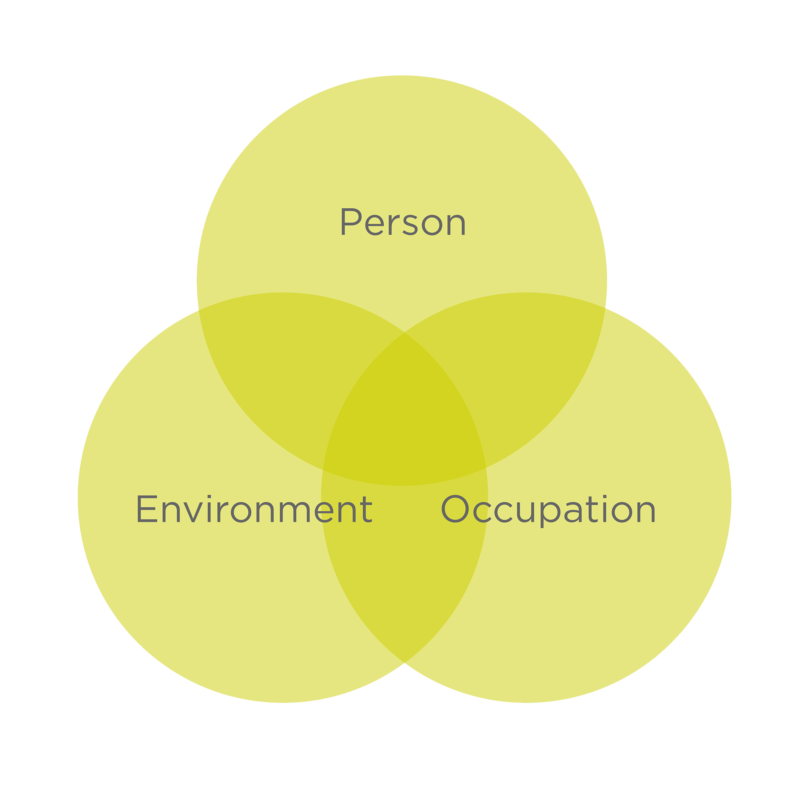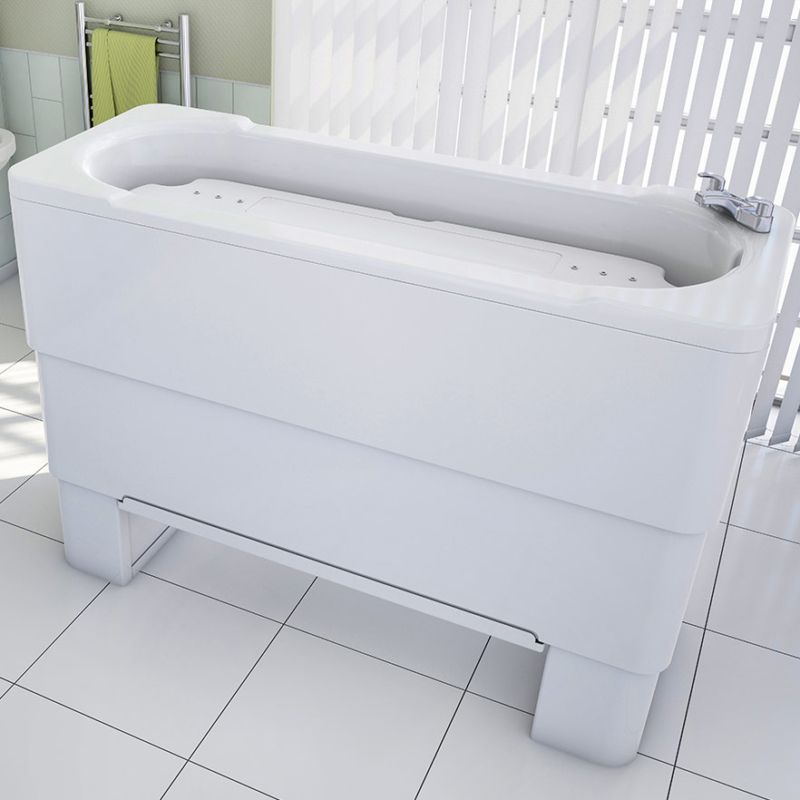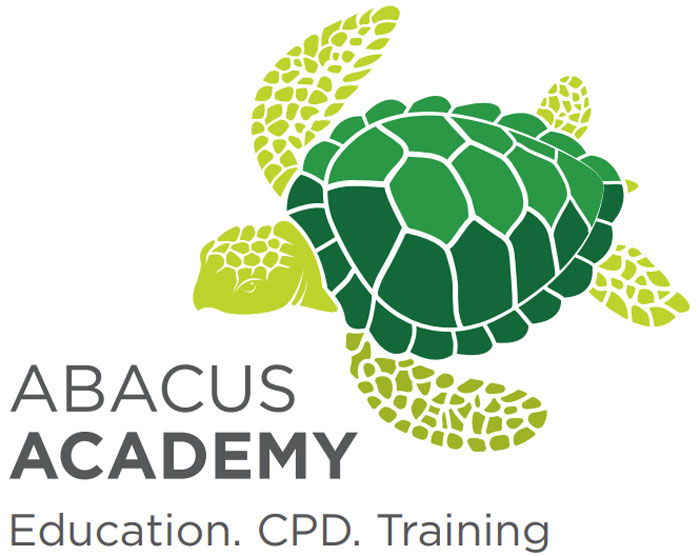Case study 1 – Application of PEO
Background
Maisie is a 9-year-old girl and she lives with her mum and two older siblings in a detached, owner occupied property. She is unable to communicate verbally but presents as a very happy child who loves interacting with adults and her peers. She loves school and being with her family, especially going to the beach. Her favourite TV Programme is Strictly Come Dancing and she loves to dance in her wheelchair. Maisie has a diagnosis of cerebral palsy which affects all four limbs and she requires full assistance with transfers and bathing.
Home adaptations
Maisie had a major adaptation to the property when she moved in three years ago. She moved to a new build property which had an integral garage, and this was converted to a bedroom with an en-suite bathroom on the ground floor. Within the bathroom, a level access shower had been provided with a drop-down changing bench and a straight track ceiling hoist was provided by the local authority which transferred Maisie directly from her bed, into the en-suite and stopped above the changing bench.
Assessment of need
Maisie was re-referred to her local authority occupational therapist for further assessment as difficulties with showering had been identified by her mum. Following the initial assessment carried out by the occupational therapist, it was revealed that Maisie’s mum had been carrying her upstairs to access the family bathroom where there was a standard bath in place. On further questioning, it was discovered that Maisie was becoming distressed when hoisted on to the changing bench. She was noted to go into extension when lying in supine, even with the head of the bench slightly elevated and Maisie’s mum was not sure whether it was due to her being cold or the fear of using the shower. Her tone was affected so much that her mum had decided that she would not risk using the en-suite shower and instead, was carrying Maisie upstairs to access the family bathroom.
This was clearly putting Maisie and her mum at risk as Maisie’s posture made her difficult to carry and she was not able to assist the lift in anyway. Due to Maisie’s incontinence, her mum was undertaking this on a regular basis. Maisie’s mum revealed how she had found that Maisie’s tone was much better after lying in a warm bath and her overall range of movement was also improved. She was not willing to use the shower due to the impact it was having on Maisie’s wellbeing.
A discussion took place with Maisie’s mum regarding the benefits she had found with bathing and these included an increase in vocalisations, as Maisie demonstrated that she was more relaxed and keener to engage with her mum during bath time. She had also noted progress in her ability to fall asleep, as well as an improvement in tone and range of movement.
Recommendation
The occupational therapist agreed to recommend a Disabled Facilities Grant (DFG) for the removal of the current level access shower and changing bench, to be replaced with a specialist bath that would meet Maisie’s needs and allow a carer to bathe her safely. With Maisie’s mum’s consent, the situation was discussed at a panel meeting consisting of the occupational therapist, the grants/ technical officers at the local council and the budget holder for the DFG. This gave the occupational therapist an opportunity to explain and outline the clinical reasoning for the request for the provision of a specialist bath. The recommendation was agreed in principle and a request for a quote for the cost of the bath and any additional works was requested.
The bathing solution
A joint visit was arranged with a representative from Abacus who was able to bring a demonstration van containing different baths for the child to trial. This was particularly useful, as Maisie required specialist postural support in the bath and a trial of this was undertaken at the same time. It was agreed that the Gemini 2000 would be the most appropriate bath for Maisie, as this would meet her long-term needs (her mum was 5 foot 10 and her father was over 6 foot) and therefore the longer bath was chosen. Demonstration of the bath enabled Maisie’s mum to understand the difference between lifting Maisie in and out of a standard bath and the ability to hoist Maisie onto a height adjustable platform.
Maisie’s mum was able to adjust the height to a level that gave her the best eye contact, to improve communication and make Maisie feel most comfortable.
Positive outcome
A quote was obtained, and the grant agreed. A local contractor carried out the preliminary work required before the bath was fitted (the shower tray had to be removed and the floor levelled). Maisie was then able to be hoisted into the bath with her postural supports and the entire family has benefitted from the installation as the risk to both Maisie and her mum from accessing the first-floor bath was eliminated.
The Person Environment Occupation Model/PEO (Law et all, 1996) was used in this instance to communicate the recommendation to the DFG Panel as a way of highlighting clinical reasoning and using an evidence base. The PEO model tells us that occupational performance changes over the lifespan and at times with children, it can change very quickly as development and growth can be rapid.
It was important to assess Maisie holistically i.e. her motor skills, processes and communication.


Gemini 2000 platform bath with unique dual lift technology
For bespoke CPD education or any queries,
call the Abacus Academy on:
01527 400024


